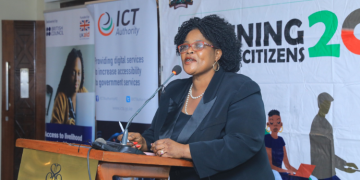The government has announced plans to abolish the Kenya National Examinations Council (KNEC) and use artificial intelligence (AI) to mark the national examinations.
The proposals contained in the Kenya National Education Assessments Council Act 2025 established the Kenya National Education Assessments Council (KNEAC) to replace KNEC as the government prepares for the transition of the Competency-Based Curriculum (CBC) to the senior secondary schools.
“The former Council shall continue in office for a period of not more than two months from the effective date as appointments are made to the Council, and the former Council shall for all intents and purposes be deemed the Council appointed under this Act,” reads part of the proposed legislation.
According to the Act, the Council will conduct, manage, administer, process, mark and certify assessments in Basic Education and post-school teacher education.
KNEAC will not be required to be accredited by any Body regarding its functions and powers.
It will conduct assessments under an Assessment Framework that shall be formulated and approved by the Council from time to time.
The Act proposes the use of different marking methods, including pen-and-paper marking, e-marking, electronic capture of marks, automated marking (Automark), optical mark recognition (OMR), AI-based marking, and any other method deemed appropriate.
Online Assessments
KNEAC may also offer any assessments on the e-assessment platform. (2)
It also has the power to develop guidelines for the administration of e-assessments from time to time.
E-assessments shall be conducted at an approved e-assessment centre.
The Council shall specify the requirements for registration of a learning institution as an e-assessment centre, including –
(a) The hardware and software necessary to undertake e-assessment.
(b) Reliable and stable internet connection.
(c) Reliable power supply.
(d) ICT personnel required to support the administration of e-assessment.
“The Council shall develop rules and guidelines for the conduct, administration, processing and marking of the e-assessment and the offences under e-assessment,” reads part of the Act.
The Council will also be required to develop differentiated assessments for learners with special needs.
Also Read: KNEC Announces Teacher Training Program with Guaranteed Contract Opportunities
Leadership & Composition of KNEAC
The Council shall consist of a Chairperson who is appointed by the President and is eligible to serve for a term of four years.
It will also have a Chief Executive Officer (CEO) appointed by the Council through a competitive recruitment process.
The CEO will hold office for a period of five years on such terms and conditions of employment as the Council.
Also Read: KNEC Opens Applications for Examiner Training Ahead of 2025 Exams
Other members include the National Treasury Principal Secretary (PS) and PS Education or their representatives, the Commission for University Education CEO, the Director of the Kenya Institute of Curriculum Development and the Secretary of the Teachers Service Commission.
The Education Cabinet Secretary (CS) will also appoint the following to be members of the Council.
- One member to represent the interests of persons with disabilities.
- One person to represent the post-school teacher training institutions.
- A person to represent the private sector involved with the management of Education, as the CS may determine.
Follow our WhatsApp Channel and X Account for real-time news updates.










































































